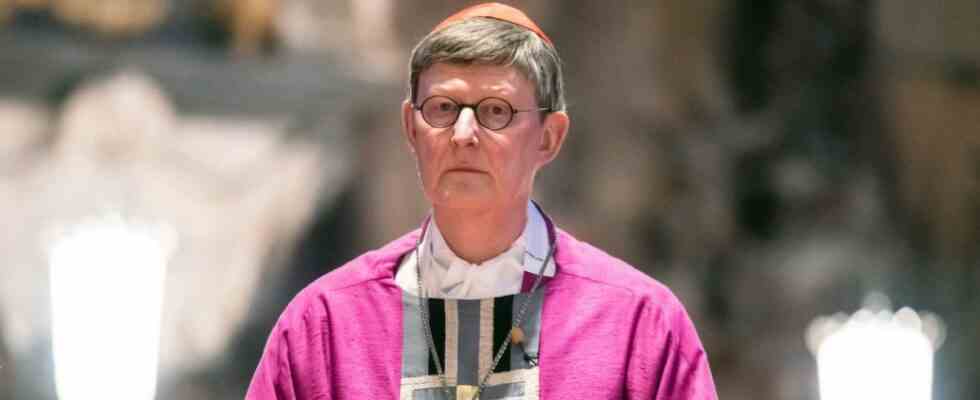Exactly 359,338 people left the Catholic Church last year – that’s roughly the population of Wuppertal, which, by the way, belongs to the Archdiocese of Cologne, so the city is twice as good a reference. The Archdiocese of Cologne is the statistical leader of the German dioceses with 41,000 people who have left, in church circles one speaks of the Woelki effect.
From him, the Archbishop of Cologne Rainer Maria Woelki, who has returned undeterred after the scandal and time out, the Pope still has a resignation letter in his desk, to be resubmitted. Francis said in a recent interview that he would only make a decision once public pressure had eased. When that will be is unclear – and how many Catholics there will still be in Cologne by then, too.
Pope Francis scoffed at the German synodal path
In the same interview, Francis had also, one could say, scoffed at the German synodal path, in which committed Catholic lay people together with clerics are making very serious efforts to give the church a more evangelical face. There is already a very good evangelical church in Germany, you don’t need two of them, Francis said. Salute to all those who, despite this papal contempt, are still struggling for reforms. But how long will they stick around?
Because, and this is the alarm signal from the latest exit statistics: Even committed Catholics are turning their backs on the church. Although Christians are still by far the largest religious community in Germany, the members of the two major churches no longer even make up half of the population.
The exodus of believers will change the country, but also the Church itself. Because with the numerous resignations, those who are willing to reform will eventually lose their supporter base. And then who is left? Presumably all those few “orthodox believers” who actually find the Catholic Church quite good in its old, absolutist-feudal form and who want to practice the anti-modernist demarcation from a pluralistic society.
Self-radicalization harbors dangers – as can be seen from the example of the USA
A look at the USA shows how such a self-radicalization can take place. There, some reactionary Catholic bishops, in an ominous alliance with fundamentalist Evangelicals, are dividing society and proclaiming – in a perversion of the Christian faith – not the good news but hatred.
Fortunately, Germany is still a long way from that. For those who have left, the numerous scandals are probably only the last drop. Many people have turned their backs on the Catholic official church, above all, because – instead of really being with them, accompanying them and listening to them – they have preferred to make detailed regulations over the past centuries, to teach them and to patronize them. Despite all the justified criticism and scandals, the Catholic Church in Germany has always been seen as an integrative force in society. So that it can stay that way, so that it can finally fulfill this role in a credible way, it has to learn to take account of its members’ awareness of freedom.

